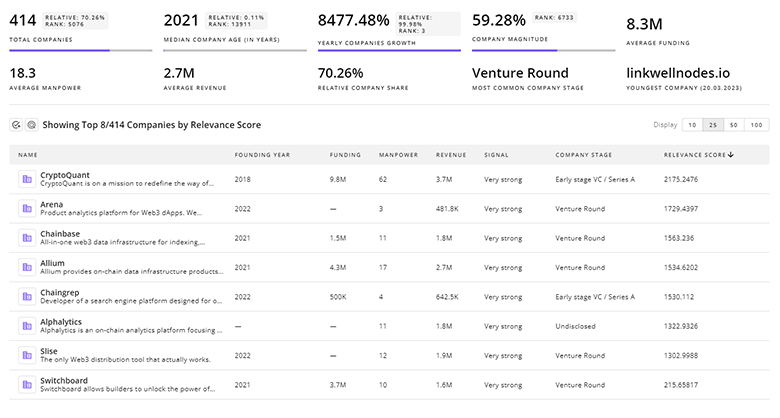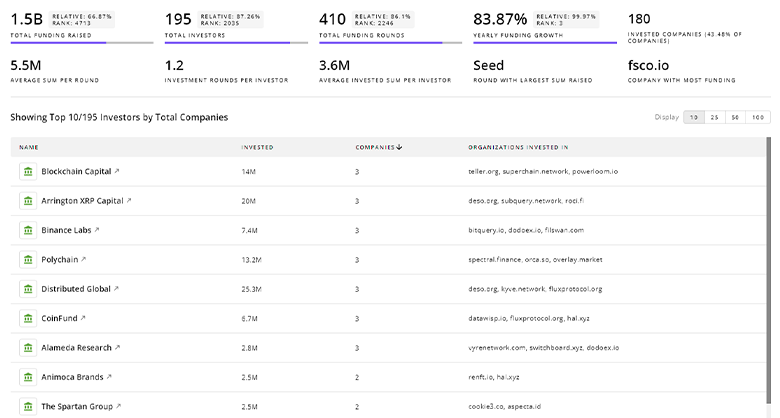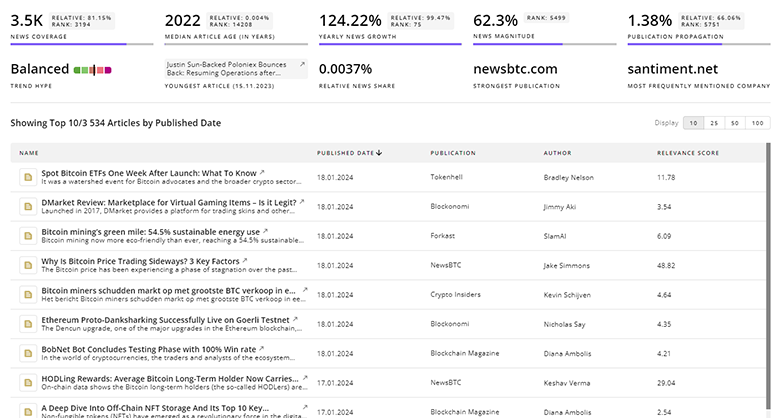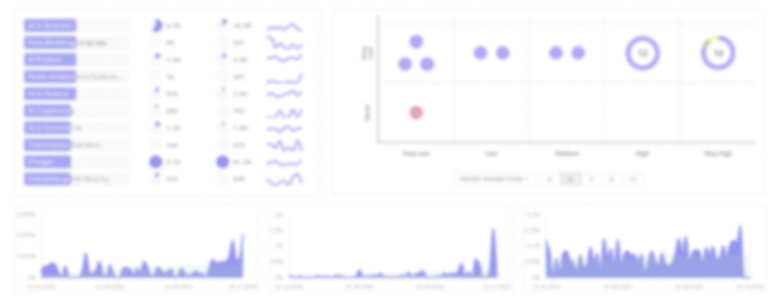Carbon Tracking Report
: Analysis on the Market, Trends, and TechnologiesThe carbon tracking sector has seen 82.03% growth in topic coverage over five years and is projected to hit $3.5 billion by 2033, driven by emerging regulatory mandates and advanced technologies such as AI-powered analytics and blockchain-based verification (2024 Carbon Market Trend Report).
We updated this report 66 days ago. Noticed something’s off? Let’s make it right together — reach out!
Topic Dominance Index of Carbon Tracking
The Topic Dominance Index trendline combines the share of voice distributions of Carbon Tracking from 3 data sources: published articles, founded companies, and global search
Key Activities and Applications
- Emissions Measurement and Reporting: Quantifying Scope 1, 2, and 3 greenhouse gas emissions with financial-grade precision to satisfy directives like the EU CSRD (nShift Unveils Emissions Tracker).
- Supply Chain Traceability: Monitoring carbon footprints across raw material sourcing to end-of-life to ensure product-level accountability, exemplified by Hyundai’s new carbon tracking system for auto brands (Hyundai Tracking System).
- Asset and Fleet Sustainability: Integrating real-time vehicle and asset location data with emissions models to optimize logistics routes and cut fuel usage (Fleet Tracking Trends).
- Consumer Carbon Footprint Apps: Empowering individuals to assess the carbon impact of purchases and lifestyle choices via mobile interfaces (Emissions-Tracking Apps).
- Verification and Certification: Achieving ISO 14083 and independent validations to guarantee data integrity, as seen with platforms attaining ISO certification for emissions tracking (ISO CertificationBureau Veritas Verification).
Emergent Trends and Core Insights
- AI and Satellite Imagery for Global Monitoring: Leveraging machine learning and remote sensing to trace emissions from over 350 million assets in real time.
- Blockchain for Transparency and Trust: Embedding distributed ledgers to create immutable carbon records and prevent fraud in offset markets.
- Transactional Carbon Accounting: Recording emissions at the transaction level to align environmental data with financial systems for auditability (Transactional Accounting).
- Emphasis on Scope 3 Emissions: Developing tools to tackle indirect value-chain emissions, the largest share of corporate footprints (Scope 3 Complexity).
- Sector-Specific Decarbonization: Fashion and automotive industries are adopting data-driven traceability to meet net-zero targets, such as TrusTrace’s platform in apparel supply chains (TrusTrace Decarbonisation).
Technologies and Methodologies
- IoT and Sensor Networks: Deploying connected devices for continuous emissions data capture from equipment and facilities (Ambient IoT for Carbon Tracking).
- GPS and RFID: Using positioning and identification technologies to link physical movements with carbon outputs (GPS Tracking Market).
- AI and Machine Learning: Applying algorithms for anomaly detection, predictive emissions modeling, and large-scale data analysis (Global Emissions Tracking).
- Satellite Imagery: Utilizing earth observation sensors to quantify CO₂ plumes from fossil fuel sources and land-use changes (Satellite CO₂ Monitor).
- Blockchain: Ensuring data immutability and traceability for carbon credits and supply chain events (WEF Blockchain Solution).
Carbon Tracking Funding
A total of 818 Carbon Tracking companies have received funding.
Overall, Carbon Tracking companies have raised $26.8B.
Companies within the Carbon Tracking domain have secured capital from 2.9K funding rounds.
The chart shows the funding trendline of Carbon Tracking companies over the last 5 years
Carbon Tracking Companies
-
TrackCarbon
TrackCarbon offers product-level environmental data for food supply chains, embedding CO₂e, water, and land-use metrics into GS1 Digital Link QR codes so procurement teams can access verified emissions figures in seconds. -
CO2TRACK
CO2TRACK applies a chemical tagging methodology to certify the origin and destination of captured CO₂ batches, preventing double-counting and enhancing transparency in CCUS value chains. -
Myplan8®
Myplan8® provides an AI-driven Climate Action Platform featuring the patented Green Score® for real-time impact measurement and blockchain-verified offsetting, plus an employee engagement certification to embed sustainability in corporate culture. -
Scopes Data
Scopes Data enhances fleet emissions accounting by enforcing driver-reported journey purposes and aggregating fuel-type details to produce precise, user-friendly GHG reports for transportation managers.
Gain a better understanding of 3.8K companies that drive Carbon Tracking, how mature and well-funded these companies are.

3.8K Carbon Tracking Companies
Discover Carbon Tracking Companies, their Funding, Manpower, Revenues, Stages, and much more
Carbon Tracking Investors
Gain insights into 3.3K Carbon Tracking investors and investment deals. TrendFeedr’s investors tool presents an overview of investment trends and activities, helping create better investment strategies and partnerships.

3.3K Carbon Tracking Investors
Discover Carbon Tracking Investors, Funding Rounds, Invested Amounts, and Funding Growth
Carbon Tracking News
Gain a competitive advantage with access to 5.0K Carbon Tracking articles with TrendFeedr's News feature. The tool offers an extensive database of articles covering recent trends and past events in Carbon Tracking. This enables innovators and market leaders to make well-informed fact-based decisions.

5.0K Carbon Tracking News Articles
Discover Latest Carbon Tracking Articles, News Magnitude, Publication Propagation, Yearly Growth, and Strongest Publications
Executive Summary
The carbon tracking landscape is rapidly evolving, with substantial growth in coverage and funding reflecting the sector’s strategic importance. Companies are expanding from basic emissions logging to comprehensive platforms that integrate AI, IoT, satellite analytics, and blockchain to ensure data integrity and regulatory compliance. A pronounced shift toward Scope 3 visibility and transaction-level accounting underscores the need for deep supply-chain collaboration. As regulations tighten and market demand for transparent decarbonization intensifies, organizations that harness granular, real-time carbon data will secure competitive advantage and drive meaningful emission reductions.
We seek partnerships with industry experts to deliver actionable insights into trends and tech. Interested? Let us know!








